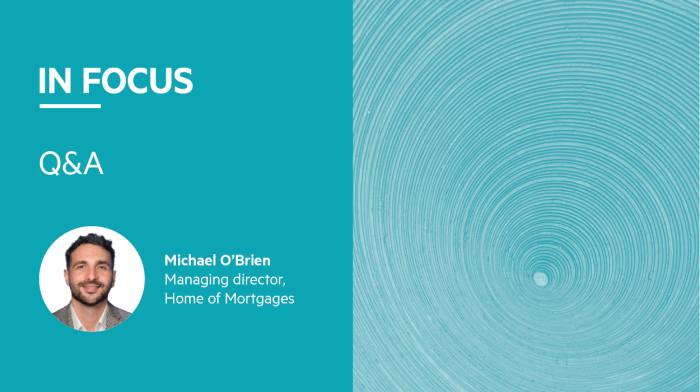
The housing market has been shaken by rampant inflation and rising interest rates with additional shocks caused by the previous government's economic decisions.
But despite doom and gloom forecasts of price crashes up to 20 per cent, Michael O'Brien does not believe the market is in anywhere near as much trouble as it was in 2008.
The managing director of Home of Mortgages tells FTAdviser in Focus why he believes the wheels will continue turning in the housing market, and what the new cost of borrowing will look like.
FTA: You have previously said the property market is not in as bad a position as it was in 2008. Why is that?
MO'B: In 2008 the property market was directly affected due to the inability of borrowers being able to access the mortgage market.
High loan-to-value mortgage products were not available and large section of specialist lenders disappeared completely.
New build properties were hit the worst with some lenders only lending a maximum of 75 per cent LTV on new build apartments.
This lead many developers stopping in their tracks as they were unable to sell their products once built. None of these factors are evident in this market.
Borrowing has become more expensive, but lenders still have an appetite, greater financial stability and the desire for homeownership continues to be unwavering.
FTA: What's your outlook on the market if we head into a prolonged recession next year?
MO'B: House prices to fall back to 2021 levels, which in some areas of the country will mean up to 10 per cent falls and in others a smaller decrease.
Should unemployment rise significantly, we may see a slightly higher fall but perhaps only to where we were pre-pandemic. My prediction is all based on supply and demand as lenders will still facilitate a market.
FTA: Do you think the government's stamp duty cuts are enough to keep the market going?
MO'B: The stamp duty cuts are welcomed but not nearly significant enough to effect action. Buyers that have the ability to buy would have purchased with or without the reduction in stamp duty.
The market will keep going once we borrowers have acclimatised to the new cost of borrowing being circa 5 per cent.
FTA: Some believe prices could crash up to 20 per cent over the next two years. What's your view on that?
MO'B: The lack of supply will stop house prices fall so steeply in my view. Despite the increased cost of borrowing over the past two months and daily reports of a house prices crash, agents are still selling houses daily.
Due to the unfair tax rules regarding mortgage interest for landlords, I can see an increase in landlords looking to offload some of their portfolio – a decision likely to be considered as they consult their mortgage adviser on the cost of their next fixed rate mortgage deal.






